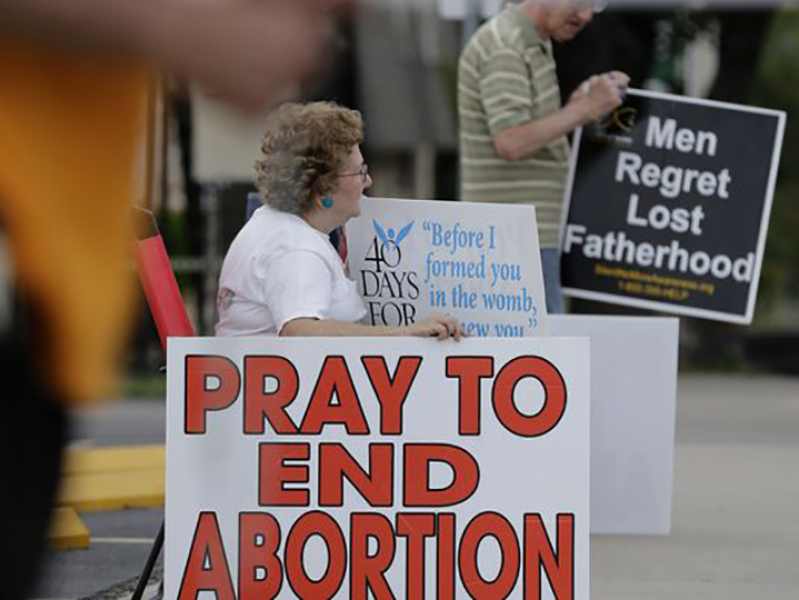
A federal appeals court upheld strict abortion restrictions passed by the state of Texas on Tuesday. That decision means that as few as seven abortion clinics could stay open in that state based on those regulations.
According to a report in the Associated Press, the 5th U.S. Circuit Court of Appeals made a decision that would allow Texas to require abortion clinics to meet "hospital-level" operating standards. The restrictions were approved in 2013 by a Republican-dominated state government.
"Abortion practitioners should have no right to operate their businesses from sub-standard facilities and with doctors who lack admitting privileges at a hospital," Texas Attorney General Ken Paxton, a Republican, said.
However, pro-choice groups told the Associated Press that they will appeal the ruling to the U.S. Supreme Court, which temporarily halted enforcement of the law last year. Nancy Northrop, president and CEO of the Center for Reproductive Rights, expressed dismay with the lower court's decision.
"Not since before Roe v. Wade has a law or court decision had the potential to devastate access to reproductive health care on such a sweeping scale," Northrop said. "We now look to the Justices to stop the sham laws that are shutting clinics down and placing countless women at risk of serious harm."
Stephanie Toti, an attorney working for the center, told the Associated Press that barring a Supreme Court intervention, Texas could start enforcing the restrictions in about three weeks. The Associated Press noted that only seven abortion facilities in Texas meet the state's rigid requirements; four of them were operated by Planned Parenthood.
"Under the new restrictions, the only remaining abortion facilities in Texas would be in major cities," the Associated Press wrote. "One exception would be a Whole Woman's Health clinic in McAllen, near the Texas-Mexico border, which the 5th Circuit exempted from some restrictions - but Toti said even those exemptions are so limited that it may not be practical to keep that clinic open."
According to the Associated Press, conservatives in the state, including Texas Gov. Greg Abbott, justified the restrictions by arguing that the new standards protect women's health. Opponents of the law countered that the measures could be a small step in blocking abortions in that state.
"About 18 abortion clinics are currently open in Texas, though the number fluctuates depending on whether a facility has a doctor with hospital admitting privileges," the Associated Press wrote.
Brittney Martin of Dallas Morning News elaborated on the abortion restrictions passed by the state.
"The regulations are spelled out in more than 100 pages of state statute and include specific room and doorway sizes, sterilization systems and male and female locker rooms for staff," Martin wrote. "Estimates are that building or renovating a facility to meet the state's requirements could cost between $1 million and $3.5 million."
According to Martin, the law "also bans abortion after 20 weeks of pregnancy, requires that physicians have admitting privileges at a local hospital, and tightens regulations on abortion-inducing drugs." Abbott continues to stand by the law, calling the court's decision "a vindication."
"The state of Texas will continue to fight for higher-quality health care standards for women while protecting our most vulnerable - the unborn," Abbott said.






